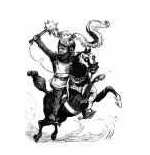
Breaking the Iron Grip of the Reigning Scientific Orthodoxy
THE TWILIGHT OF MINDLESS EVOLUTION?
The term evolution has different meanings. To the average layman it means simply that changes in life forms occur over long periods of time. This is, of course, supported by the fossil record, though that record does not reflect the innumerable “intermediate” forms that Charles Darwin’s theory prescribes. Evolution has also come to mean a kind of natural progress, applicable not only to species but to social concepts, such as moral development, and even to theology, as with the theories of Teilhard de Chardin, S.J. The cultural influence of evolution is enormous, yet few have challenged its foundation. The absence of a definition has hampered the framing and addressing of serious issues that continue to roil the sciences relating to evolution as well as a reconsideration of its broader cultural influence.
The year 2019 closed with two milestones in the drama of evolution’s grip on establishment science. The first was the passing of Phillip Johnson. He will be remembered as the first academic of real stature in recent decades to question Darwinian evolution in a public forum. Though not a scientist, Johnson’s academic pedigree was so impressive that he could not be easily dismissed: He earned a B.A. in English literature from Harvard University; he graduated first in his class from the University of Chicago Law School; he was a clerk for Earl Warren, chief justice of the U.S. Supreme Court; and he was a longtime faculty member at Boalt School of Law at the University of California, Berkeley.
Despite his immersion in legal issues, Johnson became intrigued by debates in the field of biology concerning the origin of life. What troubled him was that scientists who studied and wrote about the subject were constantly making pronouncements based on the assumption that life is a spontaneous, random event, wholly without any external influence of design or intelligence. Johnson concluded that the Darwinist consensus was propped up by a philosophy of naturalism rather than by scientific evidence. His growing skepticism led to a blockbuster book, Darwin on Trial (1991), in which he effectively demolished the accepted theory that all life and all species, including mankind, were the product of mindless material forces. Overnight, skepticism about the claims of Darwinism became widespread; hundreds, perhaps thousands, of scientists awakened to the possibility that their private doubts about at least some of the claims of the Darwinists might be valid. The nascent intelligent-design movement had a champion. Professor Johnson, by his courage, humility, and love of truth, led many to new insights into the nature of life and observable evolution.
You May Also Enjoy
Anne Barbeau Gardiner reviews From Darwin to Hitler: Evolutionary Ethics, Eugenics and Racism in Germany.
Over the past century and a half the bold little doctrine of evolution has taken center stage away from the glory that is revelation and the grandeur that is spirit.
At certain junctions of time, life did come out of nowhere. Let us abandon the scientific term "spontaneous generation" and return to Augustine’s "rationes seminales."

